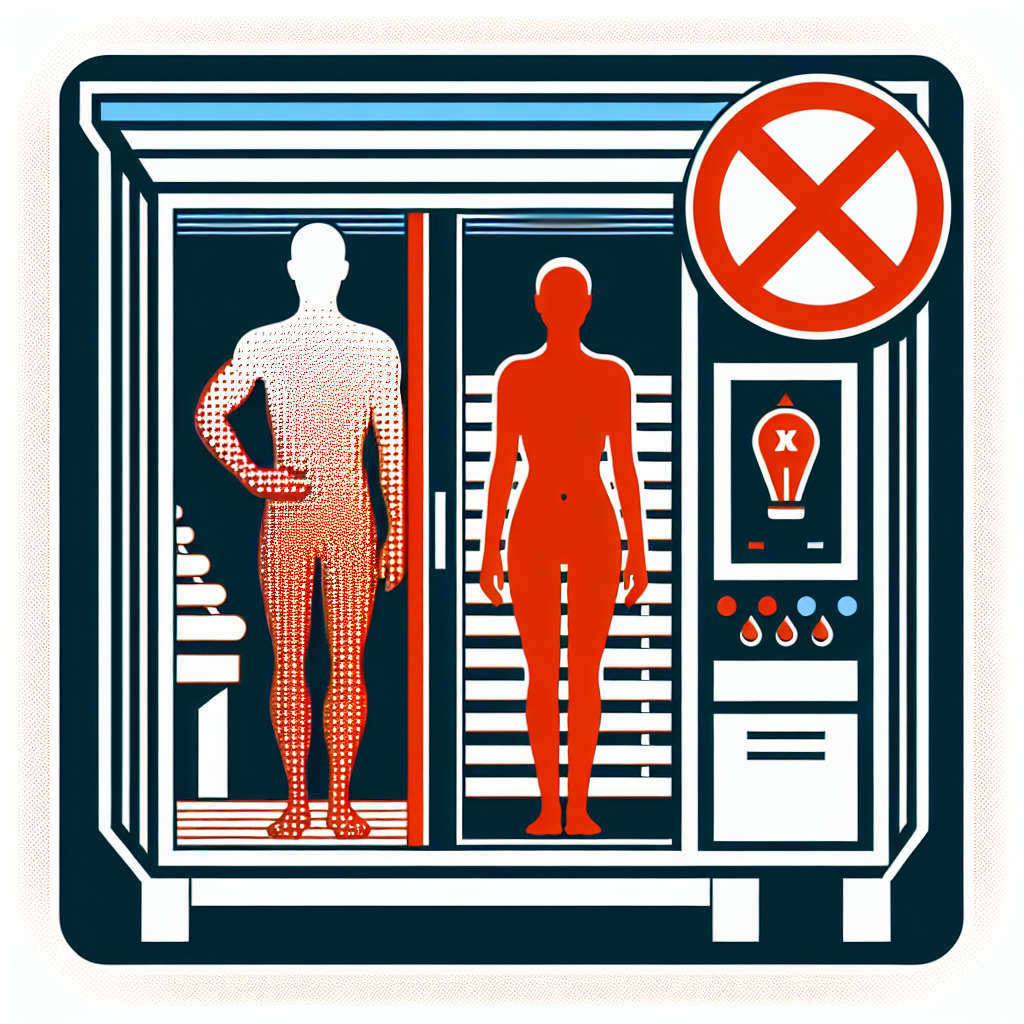Have you ever wondered if there are any contraindications for using an infrared sauna? In this article, we will explore the potential risks and precautions you should be aware of before stepping into the soothing heat of an infrared sauna. From certain medical conditions to medication interactions, we will ensure you have all the necessary information to make an informed decision about incorporating infrared sauna use into your wellness routine. So, let’s dive in and uncover what you need to know!

Overview of Infrared Sauna
Infrared sauna is a type of sauna that uses infrared technology to heat the body directly, unlike traditional saunas which heat the air around you. It has gained popularity in recent years due to its various health benefits and unique method of heating.
What is an Infrared Sauna?
An infrared sauna is a small enclosed space that uses infrared heaters to emit infrared light, which is then absorbed by the body. This light penetrates deep into the skin, raising the body’s core temperature and inducing sweating. Unlike traditional saunas, which typically operate at high temperatures, infrared saunas operate at lower temperatures while still providing the same therapeutic effects.
How Does an Infrared Sauna Work?
Infrared saunas work by emitting infrared radiation, which is a form of electromagnetic radiation. This radiation is absorbed by the body’s tissues, causing a gentle heating effect from the inside out. The heat generated by the infrared rays stimulates the sweat glands, promoting detoxification and relaxation. The lower temperatures of an infrared sauna compared to traditional saunas make them more accessible and comfortable for many people.
Benefits of Infrared Sauna
Infrared sauna sessions offer a range of benefits for both physical and mental well-being. Some of the potential advantages include:
- Detoxification: Sweating in an infrared sauna can help flush out toxins from the body, including heavy metals and pollutants.
- Improved circulation: The heat from the infrared sauna dilates blood vessels, promoting better circulation and oxygenation to the body’s tissues.
- Relaxation and stress relief: The warm environment of an infrared sauna can help relax the muscles and alleviate stress and tension.
- Pain relief: Infrared saunas have been reported to help reduce muscle and joint pain, as well as alleviate symptoms of conditions such as arthritis.
- Skin health: The increased circulation and sweating during an infrared sauna session can improve the complexion, clear pores, and promote a healthy glow.
- Enhanced immune function: Regular use of an infrared sauna may help strengthen the immune system and increase the body’s resistance to illness.
Contraindications for Infrared Sauna Use
While infrared saunas can be beneficial for many individuals, there are certain contraindications to consider. These contraindications are specific circumstances or medical conditions in which the use of an infrared sauna may not be safe or may pose potential risks. It is essential to be aware of these contraindications and consult with a healthcare professional before using an infrared sauna, especially if you have any underlying health issues.
Pregnancy or Suspected Pregnancy
If you are pregnant or suspect that you may be pregnant, it is generally recommended to avoid using an infrared sauna. The increase in core body temperature caused by the sauna may potentially harm the developing fetus. It is always best to consult with your healthcare provider to ensure the safety of sauna use during pregnancy.
Cardiac Conditions
Individuals with cardiac conditions, such as congestive heart failure or unstable angina, should exercise caution when considering the use of an infrared sauna. The heat and increased heart rate experienced in a sauna session may put additional strain on the heart, potentially exacerbating cardiac symptoms. If you have any existing heart conditions, it is advised to consult with a cardiologist before using an infrared sauna.
High Blood Pressure
People with high blood pressure should seek medical advice before using an infrared sauna. The heat and humidity of the sauna can cause blood vessels to dilate and increase blood flow, which may temporarily elevate blood pressure. If you have uncontrolled or severe hypertension, it is essential to discuss sauna use with your healthcare provider.
Recent Heart Attack
Individuals who have experienced a recent heart attack should avoid using an infrared sauna. The stress placed on the heart during a sauna session may be too much for a healing heart. It is crucial to wait until you have fully recovered and received clearance from your healthcare provider before considering infrared sauna use.
Implanted Devices
Certain implanted medical devices, such as pacemakers or defibrillators, may be negatively affected by the electromagnetic field generated by an infrared sauna. The heat and electromagnetic radiation could potentially interfere with the function of these devices. It is essential to consult with your cardiologist or the manufacturer of the device for specific guidelines regarding sauna use.
Medications
Some medications may interact with the heat and sweating experienced in an infrared sauna session. It is advisable to consult with your healthcare provider or pharmacist to determine if any medications you are taking could potentially be affected by sauna use. Medications that can increase the risk of dehydration, dizziness, or heat sensitivity may need to be carefully monitored when using an infrared sauna.
Eczema or Psoriasis
Individuals with eczema or psoriasis should be cautious when considering the use of an infrared sauna. The high temperatures and dry heat in the sauna may exacerbate these skin conditions, causing irritation or flare-ups. It is recommended to seek advice from a dermatologist before using an infrared sauna if you have eczema or psoriasis.
Cuts or Open Wounds
If you have any cuts, open wounds, or skin infections, it is best to avoid using an infrared sauna. The heat and humidity in the sauna may delay the healing process and increase the risk of infection. It is essential to keep the skin clean and dry and allow wounds to properly heal before using an infrared sauna.
Dehydration
Sweating is a natural response to the heat in an infrared sauna, which can result in fluid loss and dehydration. Individuals who are prone to dehydration, such as those with kidney problems or certain medical conditions, should exercise caution when using an infrared sauna. It is crucial to drink plenty of water before, during, and after a sauna session to maintain hydration.
Alcohol or Substance Abuse
Using an infrared sauna after consuming alcohol or while under the influence of drugs or substances is not recommended. The combination of heat and dehydration from the sauna, along with the effects of alcohol or substances, can be harmful and potentially dangerous. It is best to avoid sauna use in these circumstances and prioritize your safety.
Overall, while infrared saunas offer numerous benefits for many individuals, it is crucial to be aware of the contraindications and potential risks associated with their use. Always consult with your healthcare provider before incorporating infrared sauna sessions into your wellness routine, especially if you have any underlying medical conditions or concerns. With proper guidance and precautions, infrared saunas can be a valuable addition to your overall health and well-being.

